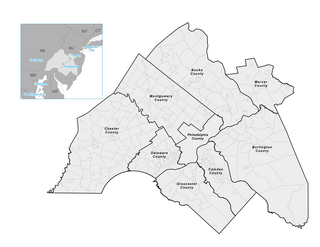The Green Party of Ontario is a political party in Ontario, Canada. The party is led by Mike Schreiner. In 2018, Schreiner was elected as the party's first member of the Ontario Legislative Assembly. In the past, the party did see significant gains in the 2007 provincial election, earning 8% of the popular vote with some candidates placing second and third in their ridings. A milestone was reached in the 2018 provincial election, when Schreiner was elected to the Legislative Assembly of Ontario in the riding of Guelph.
The Progressive Party of Canada, formally the National Progressive Party, was a federal-level political party in Canada in the 1920s until 1930. It was linked with the provincial United Farmers parties in several provinces, and it spawned the Progressive Party of Saskatchewan, and the Progressive Party of Manitoba, which formed the government of that province. The Progressive Party was part of the farmers' political movement that included federal and provincial Progressive and United Farmers' parties.

The Ontario Agricultural College (OAC) originated at the agricultural laboratories of the Toronto Normal School, and was officially founded in 1874 as an associate agricultural college of the University of Toronto. Since 1964, it has become affiliated with the University of Guelph, which operates campuses in Guelph and Ridgetown and formerly in Alfred and Kemptville, all in Ontario.
The United Farmers of Ontario (UFO) was an agrarian and populist provincial political party in Ontario, Canada. It was the Ontario provincial branch of the United Farmers movement of the early part of the 20th century.

Larry Maguire is a politician and activist farmer in Manitoba, Canada. Formerly a Progressive Conservative MLA in the Legislative Assembly of Manitoba, he was elected to the House of Commons of Canada in a by-election on November 25, 2013. He is a member of the Conservative Party of Canada and sits on the House Standing Committee on Citizenship and Immigration. During the 43rd Canadian Parliament Maguire's Private member's bill, Bill C-208, An Act to amend the Income Tax Act was adopted.
The University of Ottawa Students' Union (UOSU) (French: Syndicat étudiant de l'Université d'Ottawa; SÉUO) is the student organization representing undergraduate students of the University of Ottawa. It is the successor organization of the Student Federation of the University of Ottawa (SFUO) (French: Fédération étudiante de l'Université d'Ottawa; FÉUO) following its dissolution in 2019.
John Keith Riddell was a Canadian politician in Ontario. He served as a Member of the Provincial Parliament (MPP) in the Legislative Assembly of Ontario from 1973 to 1990, representing Huron and Huron—Middlesex for the provincial Liberal Party. He was also Minister of Agriculture and Food from 1985 to 1989 in the government of David Peterson.

The Delaware Valley Regional Planning Commission (DVRPC) is the metropolitan planning organization for the Delaware Valley. Created in 1965 by an interstate compact, DVRPC is responsible for transportation and regional planning in the greater Philadelphia area.

The Association of Municipalities of Ontario (AMO) is a non-profit organization representing municipal and regional governments in the Canadian province of Ontario. It was created on June 22, 1972 through a merger of the Ontario Municipal Association and the Ontario Association of Mayors and Reeves. The AMO was restructured in 1982, and was formally incorporated in 1990.
The Labor Council for Latin American Advancement (LCLAA) is a nonprofit, nonpartisan Latino organization affiliated with the AFL-CIO and the Change to Win federation. It was founded in 1972 to provide Latino trade union members in the United States with a more effective voice within the AFL-CIO, to encourage Latino participation in the democratic process, and to encourage the organization of Latino workers into labor unions.
The Central Student Association is the student union for all undergraduate students at the University of Guelph.

The Canadian Federation of Agriculture (CFA) is Canada's largest general farm organization, representing 200,000 farmers and farm families. The organization is headquartered in Ottawa, Ontario, with the mandate to provide a unified industry voice at the national level. The CFA was formed in 1935, and continues today as a farmer-funded, national umbrella organization representing provincial general farm organizations and national commodity groups.
Ontario AgriCorp is a Crown agency of the government of Ontario that delivers risk management programs and other services to Ontario's agriculture industry.

National Dairy Producers Union (SOYUZMOLOKO) (Russian: Национальный союз производителей молока (СОЮЗМОЛОКО)) – is a nonprofit organization based in Moscow, Russia. SOYUZMOLOKO unites milk producers and dairy processors as well as numerous service companies to represent their interests thus providing the dairy industry in Russia with economically favorable conditions.

The Elementary Teachers' Federation of Ontario is a labour union representing all public elementary school teachers, occasional teachers, and some designated early childhood educators (DECEs) in the Canadian province of Ontario. The union has 76 local chapters in the province, and over 83,000 members. The union was founded on July 1, 1998, by the merger of the Federation of Women Teachers' Associations of Ontario (FWTAO) and the Ontario Public School Teachers' Federation (OPSTF).

Texas Farm Bureau, Texas's largest farm organization, represents the interests of agricultural producers and rural communities across Texas as the "Voice of Texas Agriculture." Texas Farm Bureau's grassroots structure begins in local communities across the state of Texas. The non-profit organization's direction and decision making are dictated by its members.

The Louisiana Farm Bureau Federation (LFB) is a state chapter of the United States's largest general farm organization representing farmers, ranchers, and rural residents. The organization provides assistance toward the development and prosperity of Louisiana agriculture. It is a private, non-profit, non-governmental agency established in 1922 to bring a voice to Louisiana farmers and their families. It is based in Baton Rouge, Louisiana.
The Farmer's Sun was a progressive weekly periodical published in Ontario from 1892 until 1934. It was, at various times, the official organ of several successive political movements: the Patrons of Industry, the Farmers Association of Ontario, and the United Farmers of Ontario, and supporting the idea of a progressive farmers' political party.
Keystone Agricultural Producers (KAP) is Manitoba’s largest general farm policy organization, responsible for representing the interests of all Manitoba farmers. Their membership includes direct paying farmer and farm commodity groups. KAP is one of the province's most active lobby groups and is a member organization of the Canadian Federation of Agriculture.
Better Farming is a monthly magazine focusing on the business of farming in Ontario. As of 2016 it was the largest-circulation periodical serving Ontario's commercial farmers.









